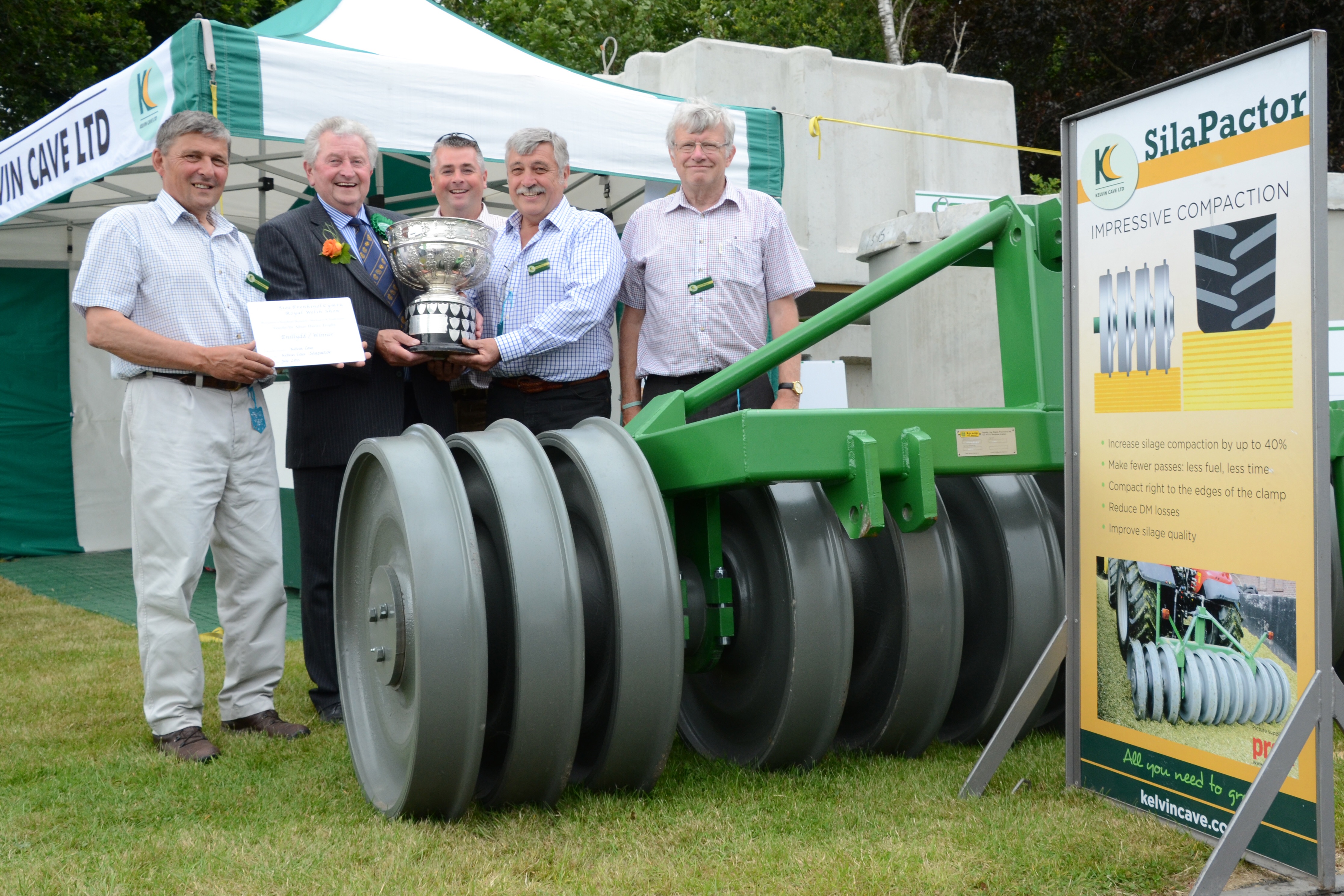
An implement which has the ability to increase the density of silage by as much as 40% has received a major industry award at the Royal Welsh Show this week.
The SilaPactor from Kelvin Cave Ltd has been awarded the prestigious Dr Alban Davies Trophy which recognises the machine, implement or device which is likely to be of most benefit to Welsh farmers.
The heavyweight implement – which is mounted on a tractor’s three-point linkage and used to consolidate forage in layers as it goes into the clamp – has been proven to be far more effective at eliminating air than a tractor alone.
“The overall effect is that a clamp of forage is far more compacted, meaning a farm’s forage storage capacity is significantly increased,” says Andy Strzelecki, technical director for Kelvin Cave Ltd.
Furthermore he says that the rapid exclusion of air significantly improves the quality and stability of silage and substantially cuts wastage.
“Added to this is a saving on time and fuel, as fewer tractor passes are needed,” he says.
The SilaPactor itself is a four tonne implement comprising 11 roller wheels over a width of three meters and will typically boost silage density to as much as 320kg DM/m3. This compares with the average UK silage density of 220kg DM/m3.
John Robertson, chairman of the judges praised the efficacy and simplicity of the machine, and said: “In all respects it’s a great device and for the cost involved it’s good value for money – you are winning in all directions.”
Also praising Kelvin Cave Ltd’s knowledge in its field, he said: “This is a company that knows its stuff and impressed the three judges. They are experts in efficient forage production and this innovation could be of great value on Welsh farms where forage is so important.”
Previous winners of the award – which has been an annual highlight of the Royal Welsh Show since the 1950s – include Massey Ferguson, The Ford Motor Company and Lister.
“We feel it’s a great honour that our silage making system has been recognised in this way and always strive to find the best feed and forage preservation solution for any UK situation,” concluded Mr Strzelecki.
